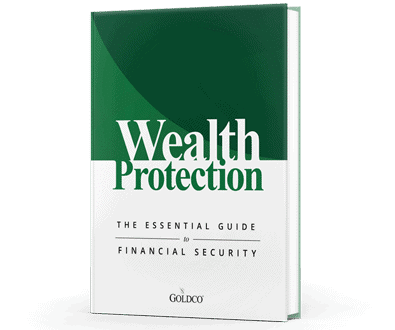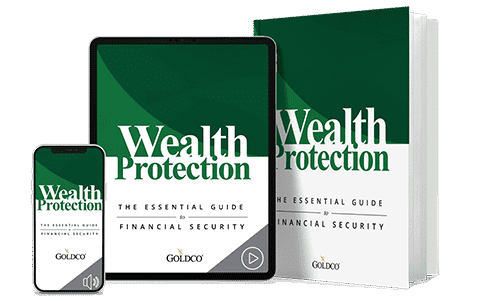Fed Meets Again as Rate Decision Looms
Six months ago, Wall Street was beside itself with glee in the expectation that the Federal Reserve would soon begin to start cutting interest rates Yet here we are nearly mid-year and, while other...
Federal Reserve

The Latin phrase quis custodiet ipsos custodes is often translated as “Who watches the watchmen?” It’s normally used to refer to the problem of police corruption or governmental overreach, a lamentation used when the government or governmental figures are clearly overstepping their authority but there is no legal way to hold them to account.
But while this question is often asked with reference to civil liberties, it can increasingly be asked of financial authorities as well. In particular there are two financial regulators today who really should be watched, the Federal Reserve and the Federal Deposit Insurance Corporation (FDIC).
Let’s start with FDIC first, the nation’s foremost banking regulator. FDIC’s most important role is backstopping the nation’s government-sponsored deposit insurance system, a system which has largely been responsible for minimizing bank runs over the past 90 years.
FDIC isn’t just supposed to be backward-looking, however, it’s also supposed to keep its pulse on the health of the banking system and warn when the system is in danger. In its quarterly updates on the banking system it publishes lists of problem banks, those that are in danger of failure.
That’s understandable, as FDIC’s deposit insurance fund takes a hit when banks fail. But is the agency really aware of which banks are actually having problems?
None of the banks that failed earlier this year were on FDIC’s list, so you have to wonder how accurate that list actually is if the agency that supposedly stays on top of the banking industry was caught unaware. And it doesn’t inspire confidence in the FDIC’s abilities that it still seems blithely unaware of the continued dangers to the financial system.
Of course, while the FDIC’s quarterly report seems relatively muted, FDIC’s Chairman has publicly warned of the downside risks to the banking industry. What’s problematic to him, however, is more the shrinking deposit base rather than any systemic issues still plaguing the industry.
Many Americans, understandably, started moving their money out of banks in the aftermath of the banking failures this year. Many moved their money into money market funds, some may have moved into stocks and bonds, and others may have bought gold and silver. But the hemorrhaging of bank deposits could cause long-term stability issues to the banking system that aren’t yet readily apparent.
In order for things to improve, failures have to be corrected. But when regulators fail, are they punished for their failures? Was the FDIC taken to task for failing to foresee this year’s banking failures? Or was the agency rewarded with a financial backstop from the Fed?
And speaking of the Fed, what happens when the Fed fails to anticipate a recession? Does Congress step in and exercise greater control over the Fed’s operations? Or does it continue to allow the Fed to operate with impunity?
The Fed’s massive balance sheet increase led to an increase in the money supply that then manifested itself in the form of inflation. Yet the Fed first denied that inflation was occurring, then said it was only transitory, then belatedly attempted to combat it by raising interest rates. Will the Fed face any consequences for any of this? Probably not.
Even today Chairman Powell and the rest of the Fed’s policymaking apparatus are still seemingly in denial about the oncoming recession. Every day seems to bring news of companies that are cutting thousands of jobs, or news of how companies are seeing falling sales or distressed consumers. And yet the Fed is still operating under the assumption that the economy is showing above-trend economic growth and consumer spending is still strong.
The likelihood of another Fed rate hike isn’t off the table, and it could come as soon as next week. So what happens when the Fed keeps hiking rates and the economy falls into recession? And if the Fed responds to a recession with quantitative easing and rate cuts, and inflation takes off once again, will the Fed be held responsible for it?
Of course, we all know the answer to that question. In government, failure is rewarded with a bigger budget. The FDIC can’t keep its deposit insurance fund large enough to protect the banking system, yet it just gets more assurances of help from Treasury. And the Fed has operated quasi-independently for decades, with neither Congress nor the White House willing to crack the whip and hold Fed Chairmen to task.
The sooner people realize that government agencies aren’t going to foresee the problems with the banking sector or the economy, the sooner they’ll realize that they have to take matters into their own hands. While the FDIC may insure up to $250,000 per account, you’ll only get that protection after your bank fails, and you won’t get advance warning.
You can also forget about the Fed bailing you out too. The Fed is more than happy to bail out big Wall Street banks and financial firms, but if markets drop more than 50% like they during the 2008 crisis, good luck getting any of that sweet bailout money into your own pockets. Americans back then were on their own, and they’ll be on their own during the next crisis too.
That’s why so many Americans today are buying gold to try to protect themselves and their financial well-being. Many remember how well gold performed when markets were plummeting, and they vowed that the next time around they wouldn’t be caught flat-footed.
Watching the wealth you’ve spent years to build up evaporate over the course of weeks or months isn’t fun. But seeing that wealth evaporate at the same time as you see gold taking off is even less fun. Shoulda woulda coulda was the lament of many Americans in 2008, but will it be likewise during the next rodeo?
With a gold IRA, Americans are able to protect retirement savings in their tax-advantaged accounts and benefit from potential gains in the gold price. Gold IRAs can be funded with tax-free rollovers from 401(k), 403(b), TSP, IRA, and similar retirement plans. Then those funds can be used to buy gold coins or gold bars that retain the same tax protections in a gold IRA as funds in any other IRA account.
If you’re looking to protect your assets with gold, and you think a gold IRA might be a good option for you, contact a Goldco representative today to learn more. With over $2 billion in precious metals placements and over 5,000 5-star reviews, Goldco works hard to provide our customers with quality gold and silver products and exemplary service. Find out why so many people have trusted Goldco for their gold IRA needs by calling Goldco today.



